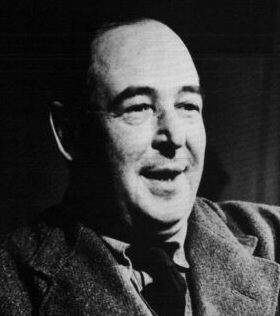 |
| C.S. Lewis (http://socrates58.blogspot.com/2006/04/cs-lewis-20th-century-christian-knight.html) |
I think C. S. Lewis was one of the most influential writers of his day. He turned many ideas of the modernists on their heads, and he questioned a lot of of their key assumptions. His full name was Clive Staples Lewis, but he liked people to call him Jack. Lewis wrote various types of books: apologetics, philosophy, theology, science fiction, and fantasy. Along with that he wrote: children’s literature and poetry, literary theory, aesthetic history, Christian allegory and spiritual autobiography, fictional letters, and devotional meditations. In this writing he embedded the central doctrines of the Apostles’ Creed and challenged the view of modernists.
Lewis was born to an Irish protestant family in 1898. His mom died when he was nine and soon after that Lewis was sent to boarding school. Later he went to Malvern College there he became an atheist. He learned to reason clearly and to think rationally. After college, he was accepted into Oxford University. There he met J. R. R. Tolkien and Owen Barfield. Because of their influence he became a Christian in 1931. He used his skills he learn from college along with his new found faith to write Christian apologetics. He died in November 22, 1963.
Two of Lewis’s most famous apologetic arguments impacted my world the moment I heard them. In Surprised by Joy, Lewis defines joy as an intense, overwhelming desire for an indescribable, numinous “something” just out of reach, while modernists argue that these longings come from displaced sexual desires. Going a little further with his idea of joy, Lewis comes up with his most original idea: the argument by desire. It goes something like this: the fact that humans experience thirst proves that humans normally drink water. Likewise, the fact that humans desire an object that our natural world cannot supply implies the existence of another, supernatural world. Another one of his arguments I really liked: the fact that humans continually get surprised by the passage of time would be like a fish continually getting surprised by the wetness of the water. An example of this would be a grandma commenting on how her grandson has grown since the last time she saw him. Lewis concluded from his argument that humans were designed for eternity. These arguments have made me think in a different way and see things with a new perspective.
I greatly admire C. S. Lewis for his ingenuity and incredible logical reasoning. In his argument by desire Lewis uses his amazing logic to prove the existence of a supernatural world. His other argument proves that humans were designed for eternity. Lewis has helped me become more certain in what I believe. Truly he was an excellent apologist.
Page created on 3/1/2011 12:00:00 AM
Last edited 3/1/2011 12:00:00 AM
Markos, Professor Louis. "The Life and Writings of C. S. Lewis. "4151 Lafayette Center Drive, Suite 100, Chantilly,: The Teaching Company®, 2000. Recoded Lecture
